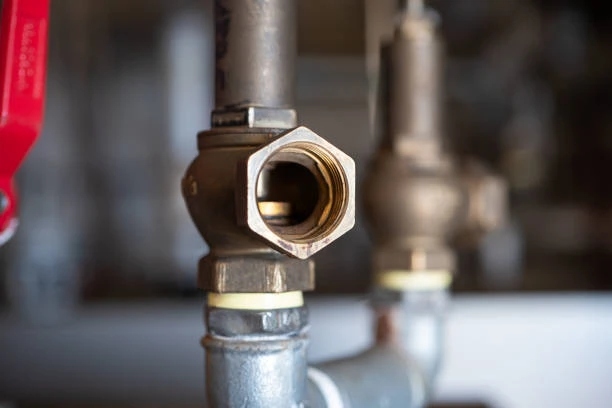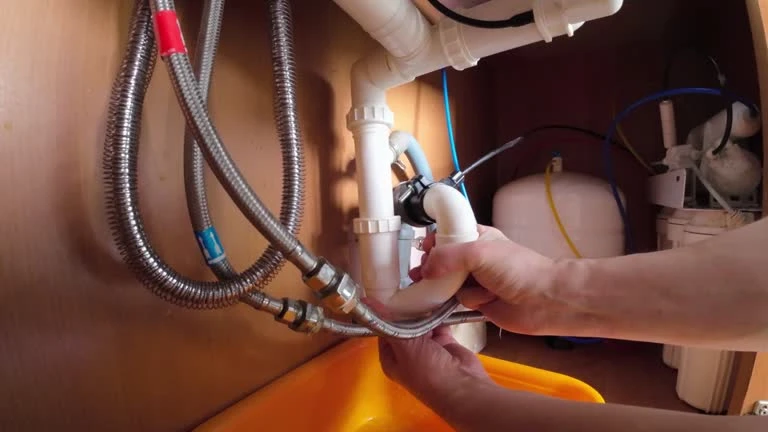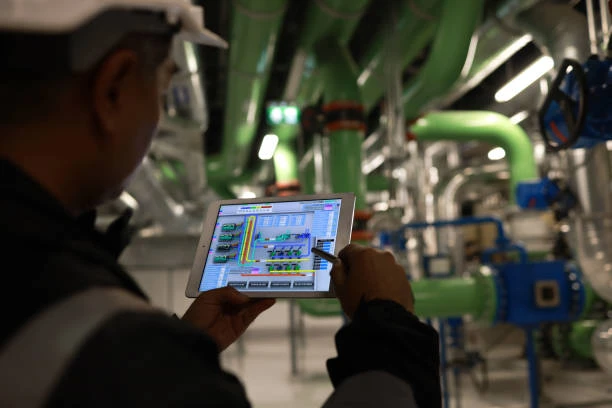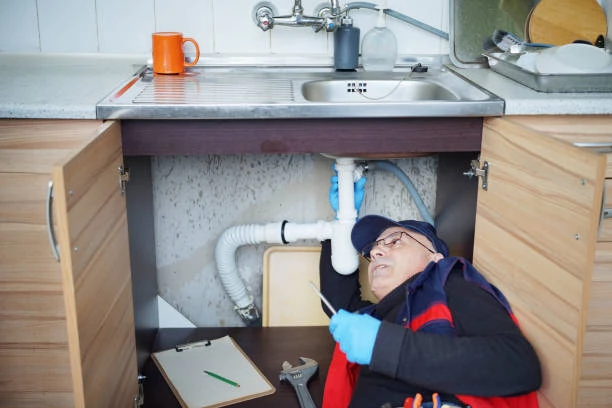Introduction: Enhancing Bathroom Design with Proper Copper Faucet Installation
Installing a copper faucet in your bathroom is not just about function—it’s about combining elegance, hygiene, and long-term durability. Whether you’re upgrading your current system or setting up a new bathroom, knowing how to choose and install the right faucet is essential. Copper faucets, long valued for their strength and antimicrobial properties, offer a reliable solution for both homeowners and commercial establishments. This guide explains everything you need to know about installing copper faucets for bathroom use, with comparisons to other materials, particularly in relation to systems like a kitchen sink with faucet, to help you make the most informed choice.
Frequently Asked Questions (FAQ)
1. Can I install a copper faucet by myself in a bathroom?
Yes, but you should have basic plumbing knowledge. If you are unsure, it’s safer and faster to hire a professional to ensure correct installation and avoid leaks.
2. Are copper faucets suitable for hot and cold water?
Absolutely. Copper performs excellently under a range of temperatures and maintains structural integrity even with frequent water temperature changes.
3. How do copper faucets compare to those used in a kitchen sink with faucet setup?
Bathroom faucets generally have lighter flow and smaller designs, while kitchen sink faucets often have pull-out spouts and larger water delivery. Copper works well in both cases, offering similar performance and durability.
4. What’s the average lifespan of a copper faucet?
Copper faucets can last over 20 years when properly maintained, far outlasting cheaper materials like plastic or zinc alloy.
5. Are copper faucets safe for drinking water?
Yes, copper is safe and even beneficial for water use, thanks to its natural antimicrobial characteristics that reduce bacterial growth.
Understanding Valves: Basic Definitions and Features
Valves are essential components in any faucet system, including those used in both bathroom setups and kitchen sink with faucet units. A valve controls the flow of water, adjusts temperature, and ensures leak-free performance.
Key Features of Copper Faucet Valves:
Corrosion Resistance: Ideal for humid environments like bathrooms.
Antimicrobial Properties: Copper naturally resists bacteria, which is a key health benefit.
Durability: Resists wear and pressure, lasting for decades.
Temperature Tolerance: Maintains performance under both hot and cold water supply.
Faucets with brass or ceramic valves provide smoother operation and fewer maintenance needs compared to rubber washer systems.
Common Uses and Industry Applications
Copper faucets are found in a wide range of residential and commercial settings due to their practical and visual advantages.
Examples of Application:
Residential Bathrooms: Suitable for sinks, bathtubs, and shower systems.
Hotels and Resorts: Used for premium styling and long-lasting use.
Spas and Wellness Centres: Preferred for their hygienic nature and stylish finish.
Healthcare Facilities: Copper’s antimicrobial feature makes it an excellent choice.
Restaurants and Commercial Kitchens: Copper faucets perform equally well in a kitchen sink with faucet setup due to their reliability.
How to Choose the Right Copper Faucet for Your Bathroom
Choosing the right copper faucet involves evaluating more than just appearance. Performance, certification, and compatibility with your water system are equally important.
Buying Tips:
1. Material Composition
Look for genuine copper or solid faucet brass construction. Avoid models with only a copper coating over weak materials.
2. Finish and Design
Available finishes include brushed copper, antique bronze, and polished. Pick one that complements your bathroom decor while offering resistance to water stains and fingerprints.
3. Valve Quality
Opt for ceramic disc or brass cartridge valves. These offer superior flow control and longer life than basic plastic mechanisms.
4. Certification and Standards
Ensure the product complies with international plumbing standards such as ISO, ASTM, or DIN, confirming safety and durability.
5. Installation Fit
Check spacing and size specifications to ensure the faucet fits your sink or vanity layout. Universal connectors make installation easier.
Key Installation Tips for Copper Bathroom Faucets
Installation success depends on proper planning and attention to detail. A well-installed faucet performs efficiently and avoids costly repairs.
Step-by-Step Advice:
1. Shut Off Water Supply
Always turn off the main and local water valves before starting installation.
2. Prepare Tools
Gather necessary tools like adjustable spanners, Teflon tape, sealant, and plumber’s putty.
3. Clean Installation Area
Ensure the sink surface and mounting holes are clean and dry before placing the faucet.
4. Apply Thread Sealant
Use Teflon tape or joint compound on threaded fittings to prevent leaks.
5. Avoid Over-Tightening
Fasten connections snugly, but don’t overtighten. Excess force may crack or warp copper parts.
6. Check Water Flow
Once installation is complete, slowly turn the water back on and test for leaks and water pressure.
Comparison: Copper vs Other Faucet Materials
Below is a comparison between copper and other common faucet materials, including options used in a kitchen sink with faucet.
| Feature | Copper / Brass | Stainless Steel | PVC / Plastic | Zinc Alloy |
|---|---|---|---|---|
| Durability | Very High | High | Low | Medium |
| Corrosion Resistance | Excellent | Excellent | Moderate | Moderate |
| Antibacterial Properties | Yes | No | No | No |
| Heat Resistance | Excellent | Excellent | Poor | Moderate |
| Aesthetic Value | High | Moderate | Low | Moderate |
| Lifespan | 20+ Years | 10–15 Years | 3–5 Years | 5–8 Years |
| Eco-Friendliness | Recyclable | Recyclable | Not Recyclable | Recyclable |
| Cost | Medium to High | High | Low | Low |
Copper clearly stands out as the most well-rounded material, especially in long-term value, hygiene, and temperature performance.
Conclusion
Installing a copper faucet in your bathroom is a valuable upgrade, both in style and performance. Copper faucets deliver long-term reliability, health benefits, and elegant design. Compared to cheaper alternatives like plastic or zinc alloy, they offer greater durability and hygiene, making them ideal for any modern bathroom.
Whether you’re planning to renovate your bathroom or considering updates to your kitchen sink with faucet, copper faucets are a smart investment. This guide has provided insights into their features, installation techniques, comparison with other materials, and how to choose the right one based on certifications and design.
Contact IFAN for Catalogues and Samples
Need technical documents, catalogues, or sample products? Reach out to IFAN today.
For more information,pls visit our webside https://waterpipefitting.com/
Pls Mailto: [email protected]
Whatsapp: +86 15088288323
Our team responds quickly and provides professional support for all your pipeline needs.
IFAN International Standard
IFAN piping systems comply with a wide range of international standards to ensure high quality and performance. These include:
ASTM F1974 for multilayer piping systems
ASTM F1281 for composite pressure piping
CSA B137 for Canadian plumbing standards
DIN 16836 for German system specifications
GB18997 for Chinese domestic compliance
ISO 21003 for hot and cold water multilayer systems
This global certification coverage ensures that IFAN products meet the highest technical and safety requirements in both domestic and international markets.














Recent Comments